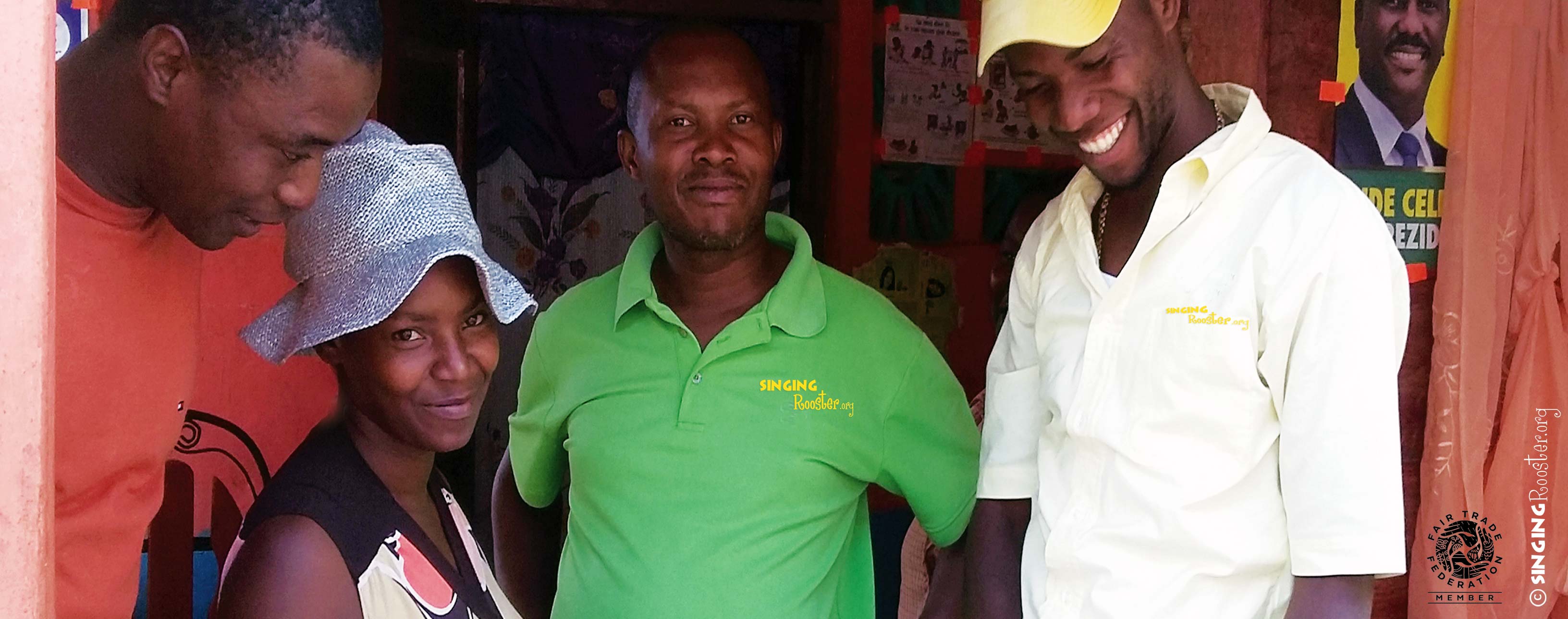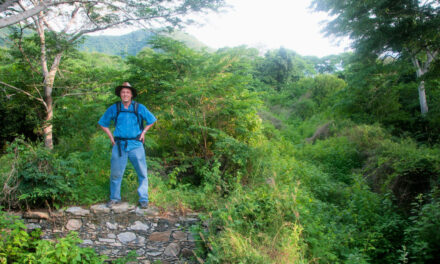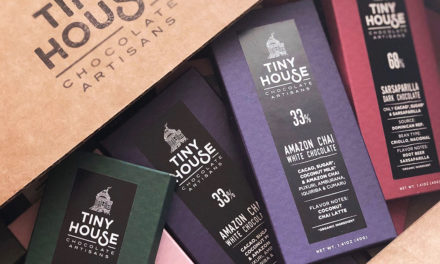Haiti Through the Eyes of a Singing Rooster
by Eric Battersby
In last month’s issue, we brought you the healthy fire (literally, just try one of these) of Hadara Slok and her raw, superfood chocolates. This month’s chocolate maker provides another unique take on chocolate, coupled with a world-saving attitude that will undoubtedly inspire all our chocolate connoisseurs.
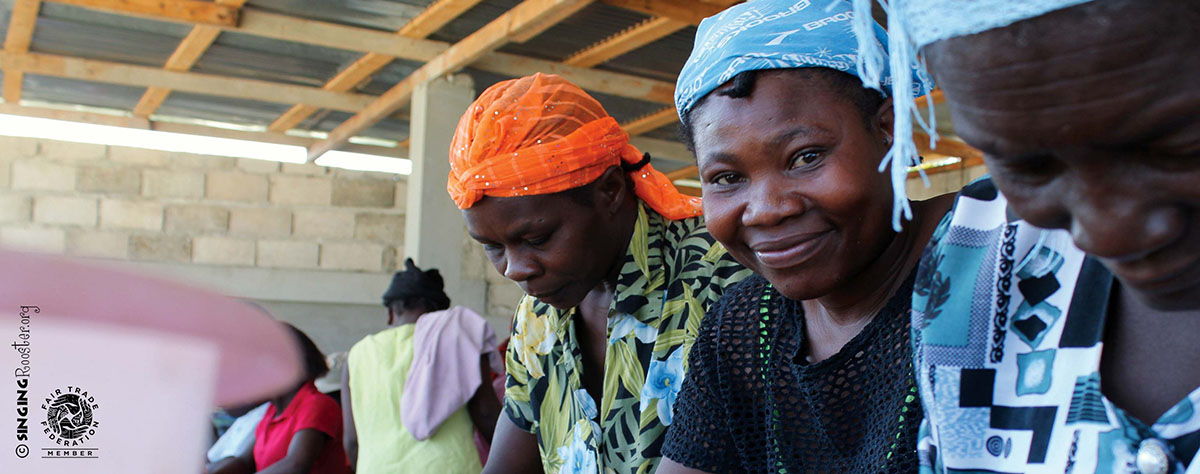
Haitians sorting cacao beans
That chocolate maker is Singing Rooster, an American nonprofit company with a deep passion for another country and its chocolate… Haiti. So much passion that this article is in part Molly Nicaise’s love letter to that country (Molly is co-founder of Singing Rooster with her husband Christophe), as she provided so much assistance in completing it that she practically deserves a share of the byline. Once again, you’re about to discover great people who just happen to be great chocolate makers. Funny how that works…
Haiti Before and After
Our journey begins with a little Haitian history lesson. Decades ago, back in the 1930s and 1940s, Haiti actually served as the preferred tour destination in the Caribbean. If you can look past the abject poverty so pervasive there now, you’ll see why. The climate is beautiful, it boasts the most mountains in the basin, and Haiti is home to the second longest beach coastline in the Caribbean. Absolutely beautiful.
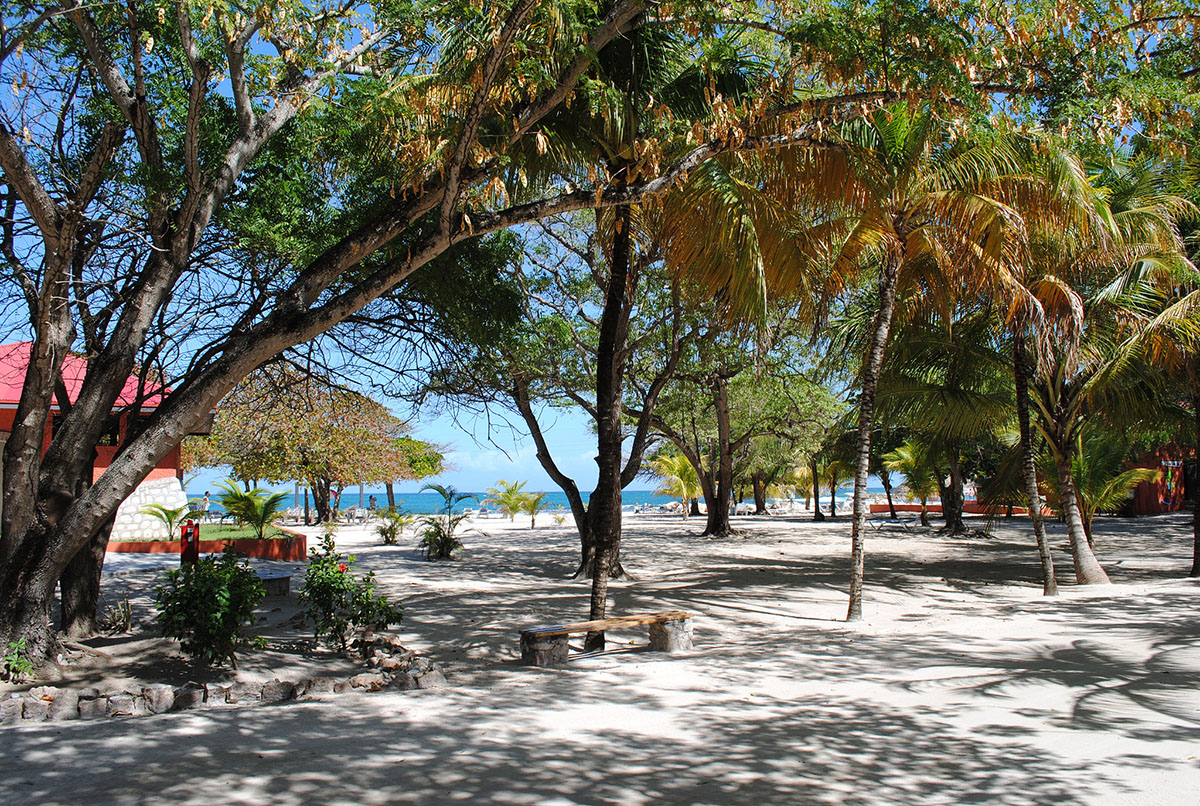
Club Orient in Labadee, Haiti by Lee Cannon
https://www.flickr.com/photos/leecannon/
Creative Commons

Anse d’Azure beach near Jeremie, Haiti by Ken Bosma
https://www.flickr.com/photos/kretyen/
Creative Commons
Its history captivates, its people are vibrant, and its tropical jungles hold wondrous secrets – think caves, waterfalls, and wildlife. Unfortunately, the island also holds a dark history… the Duvaliers.
Haiti’s preferred destination status came to a screeching halt in the mid-1950’s with the tortuous reign of the Duvalier family’s father and son dictators. The Duvaliers required total submission. Those not willing to submit to their rule were murdered. No mercy. Their reign tragically showcased a dark time both for Haiti and for humanity, once you ponder on how the rest of the world turned a blind eye to the country’s plight.
Finally in the late 1980s, after nearly 30 years of fascist-esque rule, Haiti successfully ousted Baby Doc Duvalier, but unfortunately three decades of damage proved difficult to undo.
It’s an immeasurably sad story, and a chapter in Haiti’s history from which it has yet to fully recover, largely because the people best poised to help – wealthy, educated, future employers – nearly all fled.
Current day Haiti now boasts a dismal economy, no departments of sanitation or transportation, and a poorly educated citizenry. Less than 50% of the population receives access to schools, medicine and jobs, violence against women runs rampant, and 80% of Haiti’s ‘orphans’ actually do have parents, just parents who simply cannot care for them.

The back and garden of the Palais de Sans-Souci, Milot, Haiti, by Rémi Kaupp
https://www.flickr.com/photos/le_korrigan/
Creative Commons
Ask Not for Whom the Rooster Sings…
As Molly puts it, “We blame our adventures in chocolate on Google. We began volunteering in Haiti around 2005 with a local church group and found it a wonderful, horrifying, beautiful country.”
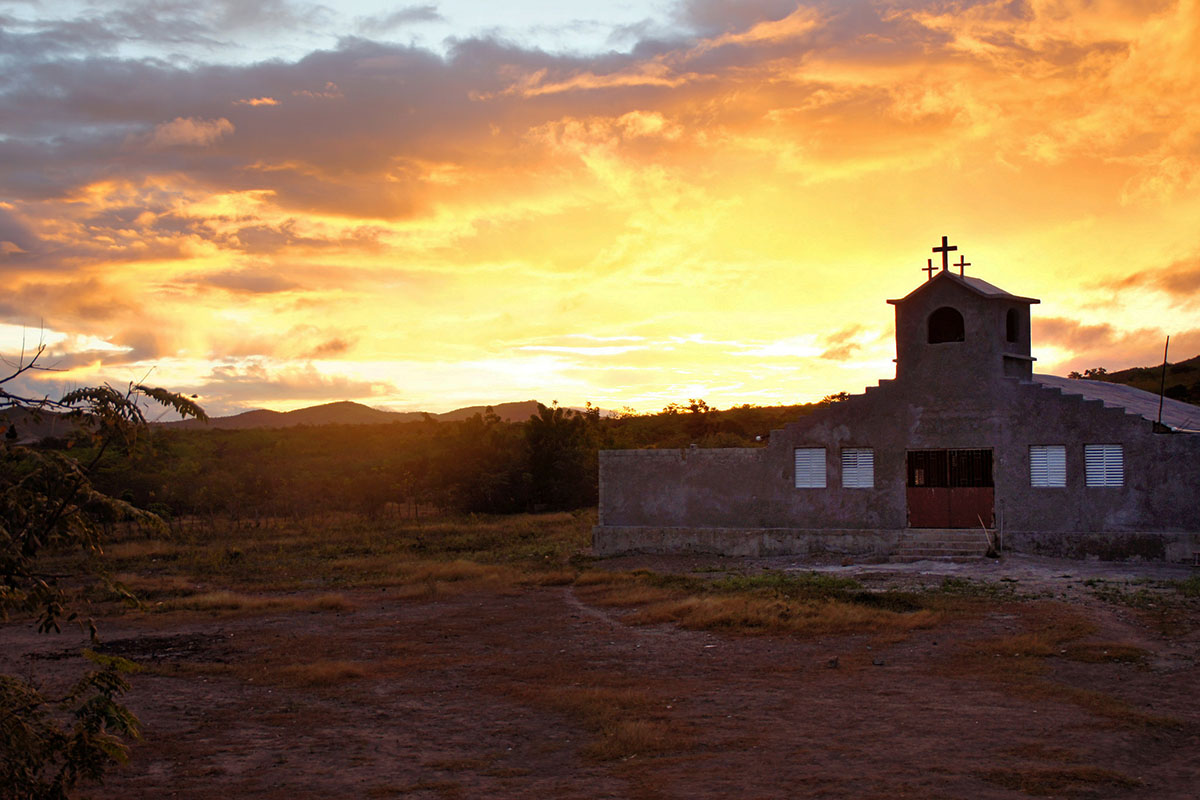
Northwest Haiti Christian Mission – Sunrise at Beauchamp, Haiti.
by Feed My Starving Children
https://www.flickr.com/photos/fmsc/
For more info on Feed My Starving Children, please visit: www.fmsc.org
Creative Commons
After several trips, Molly and her husband Christophe’s felt gravely concerned about Haiti’s ever-present lack of infrastructure. After Duvalier’s ouster in 1986, corporate world aid flooded Haiti, as did money, equipment and supplies from nonprofit groups all across the globe. The aid continues today, with no end in sight, but it’s not neccesarily the good thing you would expect.
Yes, corporate and nonprofit groups are doing great things like building schools, clinics, and clean water infrastructures, and Diaspora – Haitian expats living mostly on the eastern U.S. Seaboard – contribute roughly $1.5 billion annually. Unfortunately, however, Haitian communities find themselves incapable of caring for and supporting all these generous, well-intentioned gifts. Without a true support system, the donations are simply never enough.
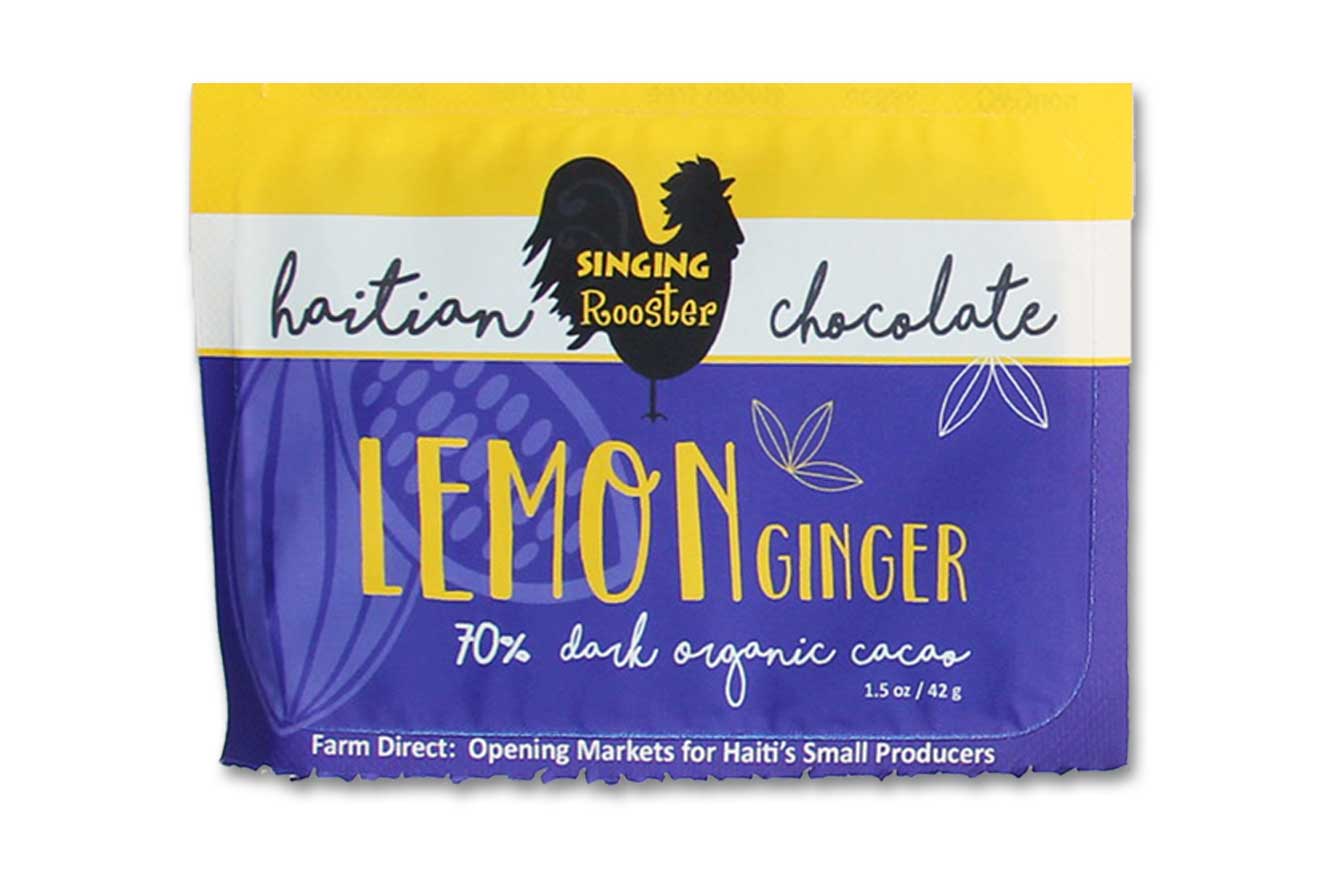
Singing Rooster’s Lemon Ginger Bar — part of the solution
This paradox has inadvertently turned Haiti’s economy into one supported by unsustainable soft money. When you factor in Haiti’s devastating environmental issues, the situation grows even more dire. Extensive deforestation plagues the country, many of its mountains painfully barren.
Environmental issues beget more environmental issues. Trees create invaluable watersheds, and with less than 5% of the land now covered by trees, it’s no wonder that crops shrivel. That same issue also contributes to Haiti’s serious water problem – less than half the population can even obtain potable water.
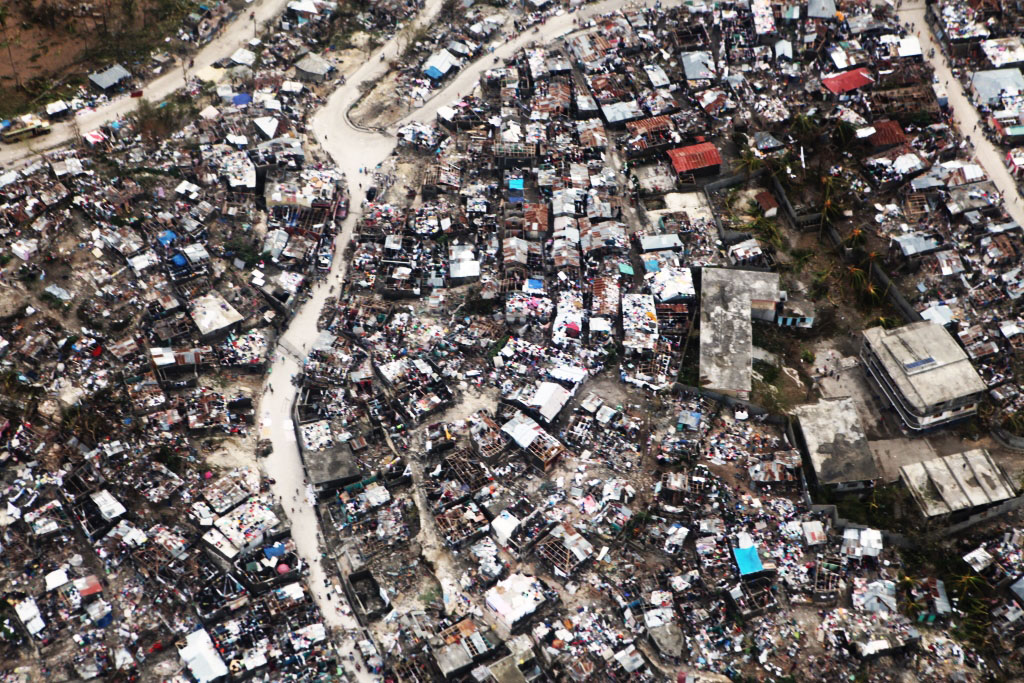
The town of Jeremie, Grand’Anse Department, Haiti, devastated by Hurricane Matthew.
by European Commission DG ECHO
https://www.flickr.com/photos/69583224@N05/
Creative Commons
Heavy rains wash away delicate topsoil, crops, livestock and buildings, and in October 2016, Hurricane Matthew hit with such intensity that it literally washed entire cities off the map. All the deforestation actually increases the harshness of hurricanes that pass through.
But, it’s not all bad news.
Singing Rooster Cacao Farmers
…It Sings for Thee
After Molly and Christophe returned home from a particularly frustrating trip, they googled “products of Haiti.” The couple surprisingly discovered that Haiti once produced the world’s largest supply of coffee, back in 1949 to be exact, and was also known as a world-class cacao producer, among the elite three percent. Those two discoveries switched on a light bulb for Molly and Christophe. As Molly tells it —
“We began working with Haiti’s coffee farmers in 2008 and cacao farmers in 2014. Our goal was to infuse rural economies by working shoulder to shoulder with farmers. We knew the world’s taste for gourmet chocolate was outpacing demand and that chocolate and coffee were well positioned to change the face of a handout nation.”
The big question, however – “Could coffee and chocolate help turn around Haiti’s dismal economy?” Molly and Christophe launched Singing Rooster in 2008, becoming a certified 501c3 nonprofit in 2010. Their goal? Directly support coffee and cacao farmers by assisting with crops and business management, then produce higher value items like roasted coffee and chocolate bars. She says —
“We spend a lot of our time trying to open direct market access in the U.S. on behalf of farmers. We return proceeds from coffee and chocolate bar sales to build better businesses in Haiti.”
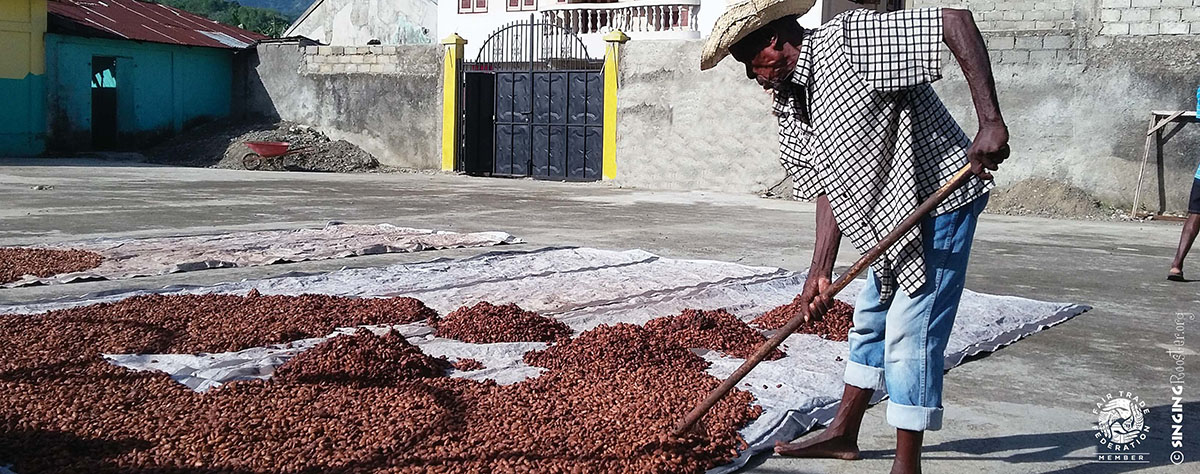
Haitian Farmer Drying Cacao Beans
In doing so, Singing Rooster essentially created a true symbiotic relationship between their farmers in Haiti, and their nonprofit business in the United States, with a strong focus on ethics to boot.
“That’s our entire goal – to pay better than fair trade and then return the proceeds to build better businesses. We launched our chocolate bar line in August 2015 and sold out quickly. We used the proceeds to build much-needed fermentation tanks—the bottleneck of most cacao production in Haiti. Within just a few months, we doubled the cooperative’s fermented cacao capacity.”
For the rest of this In Focus feature on Singing Rooster, click here to visit the Chocolate Connoisseur Magazine Shop and either subscribe or just pick up the February 2017 issue.
Click here to view Chocolate Connoisseur’s Exclusive SInging Rooster Offer:
https://chocolateconnoisseurmag.com/singing-rooster-chocolate-offer/
Visit Singing Rooster online here:
http://www.singingrooster.org/
FEBRUARY 2017 ISSUE PREVIEW


